by Labhesh | Nov 17, 2020 | GMAT, Motivation, study abroad, Test

GMAT Strategies
During the seriousness about business college, take the GMAT test. Schools realize that on the off chance that you take the GMAT test, you are serious about acquiring a graduate business degree. They likewise know it’s a demonstrated indicator of your capacity to prevail in your picked program. Thus, to score well it’s important to know GMAT Strategies.
Take the one business college test that lifts you from the remainder of the pack since it:
- Demonstrates your responsibility, inspiration, and capacity to prevail in business college.
- Measures your basic reasoning and thinking aptitudes, the two most pertinent abilities to the world’s top alumni business programs.
- Connects you with the best-fit program through customized program suggestions.
- Increases your winning potential and open a universe of chances.
- Business schools trust the GMAT test to advise affirmation choices.
Attempting to plan for the GMAT, yet don’t have a great deal of time left before the test? Regardless of whether you’re in the last phase of a long GMAT prep plan or planning to pack all your concentrating into only half a month, here are some last-minute GMAT Strategies to assist you with acing the test.
4 GMAT Cram Strategies:
In case you’re preparing for the GMAT at the last hour, you’ll have to do so successfully, making the most effective utilization of your time. We should go over the four best last minute GMAT prep tips to benefit as much as possible from your GMAT cram sessions.
#1: Take a Practice Test

practice before the main day
The best method to get ready for the GMAT is to take practice tests with questions composed by the Graduate Management Admissions Council (GMAC) in automated versatile organization (which utilizes a calculation progressively to change in accordance with your ability level as you travel through the test). The appropriate response clarifications will assist you with deciding your weak areas as far as ranges of abilities, question types, and segments you’ll have to concentrate on in your prep.
#2: Review the Format

review the format
Acquainting yourself with the organization of the GMAT is as significant as planning for the content of the questions themselves. You might be a math star, however the GMAT tests quant aptitudes in different ways. You’ll likewise need to become accustomed to the musicality, pacing, and visuals of the test so nothing is an amazement on test day. You can do this, obviously, by taking practice tests, however you ought to likewise survey resources like the Official Guide for GMAT Review 2017 to help yourself to remember the number of questions in each segment and what question types you’ll see on each area of the GMAT.
#3: Review Math and Grammar Rules

also go through math and grammar rules
While the GMAT isn’t a simple test, essential math and syntax aptitudes are critical to your prosperity on the test. Utilize the diagram of fundamental math ideas in the official GMATPrep Software to audit critical abilities and ideas for the quant area.
#4: Go Over Past Practice Problems

review past practice problems
On the off chance that you’ve done arrangements of training issues or finished practice tests, investigate the appropriate response clarifications for the ones you did mistakenly or address types that you will in general battle with. Attempt to see where your reasoning is self-destructing or where you’re committing imprudent errors so you can focus on those shaky areas and abstain from making comparable mistakes on the actual GMAT.
5 GMAT Test-Taking Strategies
#1: Don’t Be Afraid to Guess

don’t leave, but guess
It’s essential to move rapidly through the test and not get hung up on any one question. It may be disappointing to need to figure, yet the GMAT is structured with the goal that you aren’t relied upon to get each and every question right. The manner in which the scores are scaled implies that you can at present get a high score and a high percentile positioning without addressing each question accurately.
In case you don’t know how to address a question, first try to eliminate at least one answer choices. In any case, regardless of whether you can’t, don’t stop for a second to speculate. You’ll chance more regarding time and intellectual competence by fixating on a single question than by speculating.
#2: Choose the Shortest Sentence Correction Answer Choice

Shortest Sentence Correction Answer Choice
In case you’re stuck on a sentence remedy question and need to figure, pick the briefest one. If all else fails, it’s ideal to go with the briefest answer decision. The GMAT by and large favours compact choices over longer ones, so it’s a decent wager (however obviously not 100%).
#3: Work Backwards on Math Problems

working backwards make it easy
For GMAT critical thinking inquiries on the quant area in which you’re asked to solve for an unknown variable, you can regularly work in reverse to spare time. You may have known about this procedure as “plug and chug.” Use one of the offered response decisions to plug into the equation; in the event that you pick one in the given numerical range, you can utilize the procedure of elimination of at least one of different answers too. For instance, if answer choice C is 35 and its excessively low, you can eliminate answer choices A and B in the event that they’re, state, 17 and 21.
#4: Use the Provided Scratch Pad

use the scratch pad to note down your thoughts and other related things
At the test, you’ll be given a double-sided laminated scratch pad to compose on with a marker. Here and there, students attempt to recollect significant details from perusing appreciation entries or figures in math issues in their minds. While this may appear as though it’s sparing you time, it really saps your time and vitality.
Keep in mind, you’ll be focused and under time tension, which may make you progressively inclined to overlook little details. For instance, in three-part reading comprehension passages, you’ll need to flip through different pages with various types of data, which can take up a ton of valuable time in the event that you don’t take notes during your initial read. Utilize the scratch pad varying to move easily through each question.
#5: Outline Your Essay

prepare an outline
It might appear as though you should begin composing your 30-minute Analytical Writing Assessment paper immediately, however sketching out already really spares you time and will deliver better outcomes. It will assist you with arranging your thoughts and to communicate them all the more relevantly and successfully, and you can allude back to it as you compose, so you won’t overlook any initial thoughts you had while reading. Utilizing the content manager on the screen or your scratch pad, make a blueprint that tends to the principle contention in the given entry and the significant blemishes in its thinking that you intend to examine. In the event that you utilize the content tool to make your blueprint, simply make a point to eradicate it before you “turn in” your essay.
Day before the GMAT:
- Don’t overstrain yourself on the day preceding your test.
- What hasn’t soaked in at this point won’t mystically hold up itself in your cerebrum short-term.
- Do complete the process of studying early. Take the night off to accomplish something fun and unwinding.
- Do get a decent night’s rest.
Test Day:
- Do get up right on time, have breakfast and show up at the test community 30 minutes before your planned test time.
- Do make sure to bring your visa as a picture ID and water and a vitality bar or other light reward to eat during the breaks.
- Do play out a warm-up directly before the test. Unravel a couple of simple inquiries to get into “math mode.”
- Do remain hopeful. In the event that the questions appear to be excessively troublesome, that may really be a decent sign as your score is subject to the trouble level you figure out how to get from the calculation. Remain quiet, work rapidly however efficiently without hurrying or bouncing into ends.
- Don’t let any single question remove you from your pace or core interest.
- Remember the GMAT Strategies! 🙂
- Also, go through the GMAT Format once.
Look for the nearest test centre and book your GMAT Exam Dates.
by Labhesh | Nov 13, 2020 | Admissions counselling, GMAT, Motivation, study abroad, Test
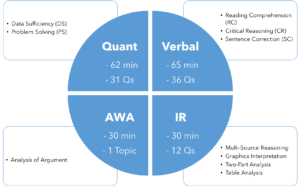
GMAT Exam Format
The GMAT Exam tests you on the following four sections:
- Analytical Writing Analysis
- Integrated Reasoning
- Quantitative
- Verbal
Here’s a concise GMAT Exam Format of every one of these segments:
- AWA – “The Analytical Writing Assessment (AWA) measures your capacity to think fundamentally and to impart your thoughts. During the AWA, you are approached to break down the thinking behind a given argument and compose a study of that argument”.

Analytical Writing Analysis
- Duration: 30 minutes
- Analysis of Argument for 1 Topic
- IR – “The Integrated Reasoning area of the GMAT estimates your capacity to assess data introduced in different arrangements from numerous sources – abilities you have to prevail in our innovatively propelled, information driven world.”

Integrated Reasoning
- Duration: 30 minutes
- 12 Questions of the accompanying question types:
Multi-Source Reasoning
Graphics Interpretation
Two-Part Analysis
Table Analysis
- Quant – “The Quantitative segment quantifies your capacity to break down information and make inferences utilizing thinking abilities. The arithmetic expected to comprehend and solve the questions in this segment of the GMAT test is no more prominent than what is for the most part instructed in secondary school classes.”

Quantitative Reasoning
- Duration: 62 minutes
- 31 Questions of the accompanying question types:
Problem Solving (PS)
Data Sufficiency (DS)
- Verbal – “The Verbal segment gauges your capacity to read and comprehend written material, to assess contentions, and to address composed material to adjust to standard composed English.”

Verbal GMAT
- Duration: 65 minutes
- 36 Questions from the accompanying themes:
Reading Comprehension (RC)
Critical Reasoning (CR)
Sentence Correction (SC)
Do refer to our GMAT exam syllabus article!!
Also know the GMAT Score calculation before you step into the examination hall. Good luck champs!!
by Labhesh | Nov 11, 2020 | Admissions counselling, GMAT, Motivation, study abroad, Test

GMAT Exam Syllabus
Before reading the GMAT Exam Syllabus, know what is GMAT and the reason behind taking the GMAT Exam.
GMAT Analytical Writing Assessment Exam Syllabus
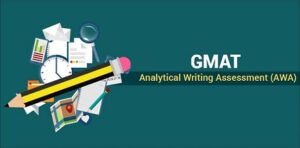
GMAT Analytical Writing Assessment Syllabus
The Analytical Writing segment will have subjects on which the applicant should write, or passage might be given on which questions will be posed. Based on the passage, the applicant should answer. The schedule for this segment is tremendous and differed as the subject of the section could be any subject of intrigue. The principle thought is to concentrate on the structure of the appropriate response and not the arguments introduced. Keep in mind, it’s anything but a trial of your sentiment yet your writing style, so it is more secure to adhere to unbiased assessment according to the GMAT Exam Syllabus.
In this area, you need to examine the thinking and afterward present your argument. Keep in mind, you will be decided on how all around contemplated you locate a given argument.
In this area, you need to write an essay on the issue given to you. The applicant needs to offer an input in around 600 words. The opinion can be supportive of the given articulation or applicants can offer their own input. Be that as it may, make a point to offer your input in an appropriately organized way as you will be decided on this premise.
GMAT Integrated Reasoning Syllabus

GMAT Integrated Reasoning Syllabus
The Integrated Reasoning area is the freshest expansion in the GMAT Exam Syllabus. This area tests the competitors’ capacity to assess the information introduced in chart or table organization. This segment has 12 questions of the following kind:
This area gauges applicants’ capacity to sort and analyse a table including information, similar to a spreadsheet, to decide the significant data or the one that meets certain conditions.
Measures the competitors’ abilities to take care of complex issues. The issues can be verbal, quantitative, or a blend of both. The configuration is flexible and covers a wide scope of substance. The candidate’s ability to tackle simultaneous equations, assess compromises, and observe connections between two substances is estimated.
It gauges competitors’ abilities to inspect information from various sources tables, illustrations, text sections, or a mix of all the three and analyse each source of information cautiously for addressing numerous questions. The candidates will be approached to draw deductions and others may expect you to decide if information is significant. In a couple of questions, applicants should perceive inconsistencies among various sources of information.
It quantifies candidate’s capacity to interpret the data introduced in a diagram or graphical picture (scatter plot, x/y chart, bar outline, pie graph, or statistical curve distribution) to discover connections, and make deductions.
GMAT Quantitative Reasoning

GMAT Quantitative Reasoning
The Quantitative Section includes two areas, in particular Data Sufficiency and Problem Solving. In the Data Sufficiency area, there will be 18 questions and, in the Problem-Solving segment, there will be 18 questions. The questions will be target type and will have various decision answers. In this area the questions can be normal from the accompanying math syllabus:
It gauges the applicants’ abilities to utilize rationale and systematic thinking for taking care of quantitative issues.
It quantifies the candidate’s capacity to inspect a quantitative issue, distinguish which information is significant, and decide when there is sufficient information to take care of the issue.
The themes are additionally partitioned into the accompanying classifications:
- Geometry
- Elementary Algebra
- Arithmetic
- Ratio Proportions
- Properties of Integers
- Permutation and combinations
- Exponents and roots
- Linear equations etc.
GMAT Verbal Reasoning Syllabus

GMAT Verbal Reasoning Syllabus
This Verbal Skills area will have 36 multiple choice questions. This area is partitioned into Critical Reasoning, Reading Comprehension and Sentence Correction. This segment tests the applicants’ capacity to appreciate the composed material, read and understand the consistent connection between the focuses referenced in the passage and concepts.
It gauges the applicants’ expertise to make arguments, to assess arguments, and detail or assess a strategy.
It gauges the candidate’s aptitude to draw deductions, comprehend legitimate connections between noteworthy points, get words and proclamations, and follow the improvement of quantitative ideas. Aside from this, the applicants’ will be tried on the accompanying understanding abilities: derivation, application, fundamental thought, supporting the thought, intelligent structure, and style.
This area estimates two wide parts of the competitors’ language capability. The main angle is to address articulation while alluding to sentences that are syntactically and fundamentally stable. The subsequent perspective is a successful articulation while alluding to sentences that adequately express a thought or relationship obviously, compactly, and linguistically.
Following areas will be covered in this Verbal Reasoning area:
- Critical thinking
- Rhetorical development of the sentences
- Sentence adjustment identified with discovering blunder or exclusion
- Reading unseen passages
- Subject-action word understanding
- Misplace modifiers
- Countable Vs Uncountable
- Parallelism
Register yourself with Anannt and ace the exam.
by Labhesh | Nov 7, 2020 | Admissions counselling, GRE, Motivation, study abroad, Test

GRE Tips
After what appears unlimited long periods of studying, pulling dusk ’til dawn affairs before tests, wrenching endlessly essays in the library and endless pots of espresso, you’ve at long last earned your certificate and have your eyes set on graduate school. The considering is a long way from being done, in any case, as your next success is the Graduate Record Examination.
Graduate programs across the nation over view the GRE as the foundation of your application.
So know the GRE Tips before you enter the Examination Hall.
Study Smarter, Not Harder

do it the smart way, not the hard way
You wouldn’t go to the rec center, subjectively pick which loads or machines to utilize, and hope to see the best outcomes. Utilizing a framework and concentrating on specific regions inside a set timetable would better assist you to accomplish your objectives. The equivalent is valid for studying for the GRE: on the off chance that you build up a deliberate way to deal with studying, including working more earnestly inside territories that need improvement, you’ll get results all the more rapidly and end up nearer to your objective score.
Distinguish how you study and, all the more significantly, how you learn. A few people learn better when they record things, while others have to hear the data for the information to soak in. Thinking back to effective investigation propensities from school can be useful in deciding your learning qualities and making a strong report plan.
Utilize the Right Study Tools

use the right tools
A study program must be good compared to the materials you use. Luckily, there are huge amounts of assets accessible that assist you with concentrating adaptively, so you can consider the material you have to audit while bypassing coursework you definitely know.
Try not to Plan on the Cram

students need to plan, not cram
Cram studying isn’t valuable for protecting “mental acquisition.” If you study a day or two preceding the test for eight hours every day, in addition to the fact that you are going to wear out, you’re bound to get a lower score. Nothing you study will stick. Similarly, as significant is taking a vacation day before the test. Permit yourself to unwind before the mental acrobatics your brain will do during the GRE.
Try not to Worry, Be Happy

be calm and happy
Finding the right mental composure is tied in with seeing the test positively and realizing you put the time in to comprehend the test completely. Visit the test place the day preceding so you know precisely how to arrive and what traffic might resemble. Have a companion drop you off to keep your psyche clear and straightforward. Take full breaths. You may even consider doing some light exercise in advance. Also not able to decide the GRE Exam Date? Be calm and refer to the link attached.
Find the test centers and dates for GRE.
by Labhesh | Nov 5, 2020 | Admissions counselling, GRE, Motivation, study abroad

The GRE Exam Date
There are a ton of GRE test dates each year, which is extraordinary for giving you choices, yet it can make picking the best GRE Exam Date a challenge. When would it be a good idea for you to take the GRE? Continue reading to gain proficiency with the answer to this question.
- The General Test is offered all year at Prometric® test centres, and furthermore on specific dates at extra testing areas outside of the Prometric test centre network. Arrangements are planned on a first-come, first-served basis.
- When choosing a test date, ensure your scores will be accounted for in an ideal opportunity for your application deadlines. Score reports are sent to your assigned score beneficiaries roughly 10–15 days after your test date.
- You can take the GRE General Test once every 21 days, up to five times inside any nonstop moving year term (365 days). This applies regardless of whether you dropped your scores on a test taken beforehand.
Know The GRE Score Board before you choose The GRE Exam Date.
Instructions to Figure Out The GRE Exam Date

Decide the GRE Date
The most significant data you have to decide your GRE plan is when scores must be gotten for every one of the schools you’re applying to. These deadlines are regularly in the pre-winter or late-fall, however make certain to discover the specific GRE Exam Date for every one of your schools. Likewise, the deadline your GRE scores should be gotten by could possibly be the date your application should be submitted. Ensure you locate the right date.
Locate the soonest deadline among every one of your schools, and star it, circle it, write it in monster letters on a bit of paper, whatever you need to do to focus on it. This is the date when your scores totally should be gotten. In case you don’t know which schools, you need to apply to, use November fifteenth as your deadline. This is an early enough date that you’ll be inside the deadline for by far most of schools.
Obviously, the most famous time matches with the application deadlines for most alumni programs – pre-fall and fall. In the event that you might want to take your GRE test during this time, at that point you should enrol for GRE at the earliest opportunity. The closer the GRE test date is to the application cut-off time, the snappier the openings will get topped off. Recall that test places for GMAT and medical boards are regularly same as GRE test centres, and you would be competing with every one of them for a seat.
Another highlight consider is that the afternoon spaces top off first. In the event that you are not a morning individual and might want to step through the examination toward the afternoon, you have to book the GRE test date somewhat sooner than something else. Recall it is about your convenience – the test itself wouldn’t be radically extraordinary on the off chance that you take it toward the beginning of the day as opposed to the evening.
When you have that date, work in reverse to make sense of when to take the GRE.
The Quick Method for When to Take GRE

quick method to decide The GRE Date
The quick and simple strategy for making sense of which GRE Exam Date to choose is to give yourself 2-3 months of planning time before you take the GRE. This will give a great many people sufficient opportunity to get ready for the test.
On the off chance that you need to leave space for retakes, include one month for each retake (two retakes are generally enough). You have to hold up in any event 21 days between each GRE you take, and leaving a month between tests gives you sufficient opportunity to make sense of the slip-ups you made and how to stay away from them.
Additionally, ensure you take the GRE at least three weeks before school deadline times so you’ll be certain schools get your scores in time.
So, in a nutshell, take your first GRE 3-4 months before your school deadlines, and begin considering 2-3 months before that. That is your straightforward response to when to take the GRE.
Also, know few things before you appear for The GRE.
by Labhesh | Nov 4, 2020 | GRE, Motivation, study abroad
Having an advanced degree on your resume can widen your opportunities. In line with it, the recent data from the Bureau of Labour Statistics and The Organisation for Economic Co-operation and Development depicts education’s role in increased earnings and low unemployment rates. Regardless of where you are going, be it a graduate school consisting of business or law, or simply just exploring different options, you are working towards making a necessary and unavoidable step for your future. Do we know what is GRE and its scoring system (The GRE score board)?
Well, let’s find out!
Register yourself for a free GRE demo class!
So, What is GRE?

What is GRE?
GRE, short form of Graduate Record Examination is owned and monitored by Education Testing services whose headquarters is recited in Princeton, New Jersey. Choosing GRE general test or the GRE subject test all depends on the course that the person is going to undertake or what the specific admission team requires from the student. However, the focus is on the GRE general test, considering the importance and popularity amongst the universities and the test candidates.
The GRE General Test is a computer based test that showcases the kind of thinking the candidate does through questions, the skills required to succeed in today’s day and age. The test taker permits you to skip questions within a section, go back and forth to change answers and nevertheless have the flexibility to jump between questions by choosing what to answer first. It helps you measure your verbal reasoning, quantitative reasoning, and analytical writing skills. These are the skills that have been built over a long period of time unrelated to any specific field of study but however necessary for all.
Do they follow a specific format?
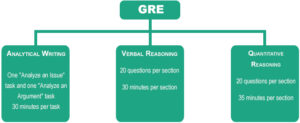
follow a specific format
Total time of 3 hours 45 minutes, the test includes of 2 verbal sections, 2 quant sections and 1 Analytical writing section. Moreover, an additional Verbal or a Quant part which is either not a scoring experimental section or non-marked research question.
Order wise, Analytical writing comes first, followed by either verbal or quant in an unknown and random order. So thus, you can either have 1 verbal and then 1 quant or 2 verbal sections at the same time followed by 2 quant questions.
Finally, The GRE score board!!

The GRE score board
With a clear picture of what GRE is and its format, lets lastly dig into and understand The GRE score board.
The candidates are scored on three aspects:
- A Verbal Reasoning score is marked on a 130–170 score scale, in 1-point increments.
- A Quantitative Reasoning score is marked on a 130–170 score scale, in 1-point increments.
- An Analytical Writing score is marked on a 0–6 score level, in half-point increments.
Verbal and Quantitative Reasoning section:
The Verbal Reasoning and Quantitative Reasoning sections of the GRE general test are section-level adaptive. This depicts that the computer chooses the second section of a measure performance based on the first section. Amongst all the sections, all questions hold equal weight towards the final score. Before the final score, a raw score is compiled for both the measures. Note: The raw score is the correct answer given for each question.
The raw score is transformed to a scaled score through a procedure well known as equating. The equating procedure accounts for small changes in difficulty between the various test editions along with differences in difficulty between individuals’ tests initiated by the section-level adaptation. Hence, a given scaled score of a specific measure mirrors a similar degree of execution paying little mind to which segment was chosen and when the test was taken.
Analytical Reasoning section:
Every essay gets marked by at least one trained rater, keeping in mind a six-point holistic scale. In comprehensive scoring, raters are prepared to give scores based on the general and the overall nature of the essay. The paper score is then scored by e-rater®, an automated program created by ETS that is fit for distinguishing article highlights identified with composing capability. If for say the scores of both the humans and the e-rater match or are close enough, the average of both the scores in considered as the final score. But however, if thy deviate a subsequent human score is gotten, and the final score is the average of the two human scores.
The final scores on the two articles are then arrived at the midpoint of and adjusted to the closest half-point stretch on the 0–6 score scale. The individual score is accounted for the Analytical Writing measure. The primary focus in scoring the Analytical Writing section is on your basic reasoning and analytical writing skills instead of grammar and mechanics.
Finally, after comprehending The GRE score board, has the article helped you in gaining a deeper insight about the scoring system pattern? If you have any doubts or suggestions, leave a comment in the comment section down below!
Know the most common GRE Vocabulary words, ranging from least difficult to most difficult.
by Labhesh | Oct 29, 2020 | ACT, Motivation, study abroad, Test

follow the Recommended Step-By-Step Approach To The ACT Essay
The whole challenge of the ACT essay is to write an essay in 30 minutes that includes the features that tend to appear in top-scoring ACT Essays. As I’ve said repeatedly, there are a few different ways to do this, but I find the following Recommended Step-By-Step Approach To The ACT Essay the easiest and most straightforward. After we go over this process, I’ll write a sample essay using these guidelines in the next section. Finally, we’ll finish our discussion of the ACT Essay by analysing the example essays from the Red Book, to see how they demonstrate the concepts we’ve discussed.
Before reading about the steps to the ACT Essay, get familiar to the Unwritten Test Design Rules of The ACT Essay
1. Watch The Clock, one of the Recommended Step-By-Step Approach To The ACT Essay.

stay focused
You only have 30 minutes, so losing focus for just a few minutes could really harm your score. Do your best to stay focused and keep writing until you’ve made it onto the third page of writing room and finished your essay—for most people, that will take up practically all of your 30 minutes.
2. Read The Prompt And Pick A Side.

choose a side
The prompt will address some issue related to the everyday lives of high-school students, so it shouldn’t be too hard for you to decide how you feel about it—or at least to pick a side that you can support.
Of course, there’s no right or wrong answer to the prompt, and the grader isn’t allowed to penalize you or reward you based on whether she agrees with your position. So just choose the side that seems easiest to support.
Moving to the 3rd Recommended Step-By-Step Approach To The ACT Essay
3. Come Up With 3 Reasons And/Or Examples To Support Your Side in the ACT Essay.

support your side with an example
You’ll need these reasons or examples to fill out your essay and support your thesis. Remember that one of the most important things about your essay is that your reasons or examples must clearly support your position. Also remember that the reasons and examples don’t have to be true or academic—they can be true or academic, or both, if you want, but the graders aren’t allowed to care either way. The only thing that matters is that your reasoning and examples would support your thesis if they were true.
4. Write Your Introduction, Including Your Thesis Statement.

start with an introduction
Now that you’ve picked a side and thought of some ways to support it, start writing.
Remember that this is a 30-minute essay test, and length counts more towards your score than any other single thing. You don’t want to waste time.
Your introductory paragraph should include your thesis statement. In addition to your thesis statement, you just want a few sentences related to the topic to fill out your essay.
You can fill out the rest of your opening paragraph by referring to the examples you’ll be using, like the 5-scoring essay does on page 133 of your copy of the Red Book. Or you can just write filler material on the general topic of the prompt, like the 6-scoring essay on page 137 of the same book does in its opening paragraph. The most important goal to accomplish with the introductory paragraph is to state your thesis clearly.
5. Write Your Supporting Paragraphs, Using Examples And/Or Reasoning.
Once you’ve finished your introduction, you’re ready to write your supporting paragraphs. This is the bulk of your essay, and length counts. I recommend one paragraph per example or reason, so if you have three examples to write about, you’ll end up writing three paragraphs.
Three isn’t necessarily the magic number of supporting paragraphs. You could do just two if you expanded on them enough to fill out more than two pages in total, or you could do four or five if you could think of that many ways to support your position, and if you could write about all of them quickly enough to finish on time. In general, though, I find that three supporting examples or reasons is the best number for most people.
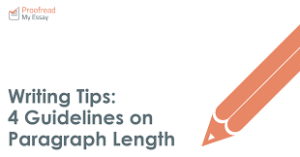
follow the structure below
Each support paragraph should more or less follow this structure:
· General statement that introduces what that paragraph will be about
· 3-5 sentences describing your reason or example
· 1-2 sentences relating this reason or example to the thesis.
Once you’ve written a paragraph like this for each example, I recommend you address counterarguments.
6. Address Counterarguments, as mentioned in the Recommended Step-By-Step Approach To The ACT Essay.

address counterarguments
You’ve got most of your essay written by now, and you should be around halfway down the second page, or possibly even further along than that. Now you need to address counterarguments.
Your counterarguments paragraph should indicate that you’re aware of reasons why someone might disagree with your answer to the prompt, but that people who disagree with you simply aren’t aware of something that makes your position best. For examples of this type of paragraph, see my sample ACT Essay on the next page, as well as the sixth paragraph of the “perfect” 6-scoring ACT Essay that starts on page 137 of the Red Book.
7. Conclude The Essay.

conclusion starters
At this point, you should be near the bottom of page 2, or even starting on page 3. It’s time to write your conclusion and finish your essay.
Start with a couple of sentences reasserting the position you took in the beginning of the essay. Then, in another couple of sentences, re-summarize your reasons and examples, and wrap up your thoughts. If necessary, you can draw this summary out to get to the third page (remember that the length of your essay is the single most reliable indicator of its score).
Now that we’ve discussed this Recommended Step-By-Step Approach To The ACT Essay in abstract, let’s take a look at some examples! On the next page, you’ll see me construct a sample ACT Essay using this process. After that, we’ll analyze the exemplar essays in the Red Book to see how the top-scoring ones follow the principles we’ve been talking about.
Know the ACT Essay Writing Tips!
Example ACT Essay
by Labhesh | Oct 23, 2020 | ACT, Admissions counselling, Motivation, study abroad, Test
You’re probably not used to thinking of ACT essay tests as having “rules” the way a multiple choice test would. But, as trained test-takers, we know that every part of a standardised test like the ACT must follow predictable guidelines, or else the results from different days’ tests wouldn’t be comparable to each other, and the test would have no purpose. In this brief section, we’ll learn the Unwritten Test Design Rules Of the ACT Essay.
Before referring to the Unwritten Test Design Rules Of the ACT Essay, register for our demo class now.

ACT Essay Rule 1: Make It To The Third Page

Write at least till the third page as mentioned in the Unwritten Test Design Rules Of The ACT Essay.
The single most important factor affecting the score of your ACT Essay is its length: the longer it is, the higher it can potentially score. If you want to be assured of having the possibility of scoring a perfect 12, I recommend you try to make it to the third page of writing space provided on the test; taking up any more space than that doesn’t seem to have any further impact on your score.
Don’t get me wrong: it’s certainly possible to write a high-scoring essay and not make it onto the third page. But most high-scoring essays will make it to the third page, and pretty much all of them will come very close to that—and you want your essay to be as much like other high-scoring essays as possible. That way, your essay grader can glance at your work, see that it looks like the other high-scoring essays, and feel comfortable giving you a good score if the actual writing is halfway decent. Remember that the grader isn’t going to spend much more than a minute evaluating your essay, and may even spend less time than that.
But this doesn’t mean you can just write two-and-a-half pages of gibberish and expect to get a good score. You still need to articulate a clear position, and support that position with relevant examples and reasoning, as we’ll discuss in this section of this Black Book.
But this length guideline does mean that if you write a short essay (say, a page-and-a-half or shorter) then you have very little chance of getting out of the middle score range, no matter how splendid your writing is.
As we’ve already discussed, the ACT will probably never be up-front with us about the impact of an essay’s length on its score, but we’ll see solid proof that length really is the most important single aspect of your essay in a few pages. So be prepared to write more than two pages in the 30 minutes that the ACT Test provides on the Writing test.
ACT Essay Rule 2: High School-Related Prompts

essay topics most of the times are related to your high-school life
Every ACT Essay prompt will be focused on the everyday lives of high-school students in some way. In many cases, the prompts will ask your opinion of some hypothetical policy that would affect high-school students; for example, the prompt on page 204 of the Red Book asks whether teenagers should be “required to maintain a ‘C’ average in school before receiving a driver’s license.” So you know that the prompt will be directly relevant to your life experience in some way.
Moving forward to the next Unwritten Test Design Rules Of The ACT Essay.
ACT Essay Rule 3: The Grader Doesn’t Care What You Talk About, As Long As It’s Relevant

What you write should be relevant
If we were writing an essay for a particular teacher in school, or for a scholarship or college application, we’d want to consider the personal biases and preferences of the people who were likely to read those essays, because those readers would make decisions about our work based on their personal feelings.
But the people who read the ACT Essay aren’t allowed to punish us for saying something just because they find it boring, or because they disagree with it. The graders of the ACT Essay are only allowed to lower your grade if you use examples and reasoning that aren’t actually relevant to your thesis.
For example, let’s imagine you were trying to support the opinion that high-school students shouldn’t have to maintain a “C” average in order to be allowed to drive, and part of your argument was that many high-school teachers are incompetent and petty, and they might deliberately give a student bad grades to keep him from driving if they didn’t like him. This could be a pretty offensive thing for an ACT Essay-grader to read, because a lot of those graders are high-school teachers themselves, and they know how hard high-school teachers have to work, and how most of them try to do a good job. But the grader wouldn’t be able to punish you for using this in your argument, because it’s directly relevant to the question—the question asked if a person’s grades should affect his driving privileges, and this part of the argument would be discussing where those grades come from and how they might be manipulated.
The reason that graders for the ACT Essay aren’t allowed to consider their personal feelings when grading your essay is the same reason behind most of what the ACT does: standardization. Since different readers will have different feelings about different subjects, ACT, Inc. instructs the readers to ignore their personal feelings and only consider whether an argument is relevant to its thesis.
So we shouldn’t spend any time trying to guess what the essay-grader wants to hear. You aren’t trying to interest your reader, nor do you need to worry about offending her. You just need to pick a position that answers the question in the prompt, and then write an essay with the same key elements that appear in other high-scoring essays, which we’ll continue to talk about in this section.
Again, if your goal is to get a high score on the ACT Writing test, all you need to think about is cranking out an essay that follows the rules we’re talking about here. Don’t waste any time trying to do anything else—it won’t help your score, and it might really hurt your score.
ACT Essay Rule 4: There’s No Set Format (But You Should Probably Use The 6-Paragraph One Anyway)

no format has to be followed
In theory, you can use any type of essay format to write a top-scoring ACT Essay. In my experience, though, the top-scoring essays do tend to have a certain similarity in their structures. They usually include an introductory paragraph and a closing paragraph, and they tend to have around three body paragraphs, each dedicated to an individual reason or example in support of the thesis. When you add in another paragraph dedicated to counter-arguments (as we’ll discuss below), you’re looking at an essay with 6 paragraphs, which is what I generally recommend.
Of course, it’s possible to get a great score without writing exactly 6 paragraphs! The exact number of paragraphs can vary. But if you want to maximize your chances of blending in with the other top-scoring essays, then you’ll want to have paragraphs for an introduction, a conclusion, a consideration of counterarguments, and a few examples or reasons to support your thesis, all of which will almost definitely work out to about 6 paragraphs in total.
In The Real ACT Prep Guide, 3rd Edition, the number of paragraphs in the example essays goes up as the scores go up; the last two essays (with scores of 5 and 6 out of 6) use 6 and 7 paragraphs, respectively.
In a moment, we’ll look at the recommended ACT essay structure in more detail, so you’ll know how and when to vary it if you really want to. Again, though, this 6-paragraph format is generally what I recommend:
· intro paragraph (with thesis statement—see below)
· first example/reason paragraph
· second example/reason paragraph
· third example/reason paragraph
· counterargument paragraph
· conclusion paragraph
While we’re on this topic, you may notice that the Red Book’s descriptions of sample essays occasionally use the word “predictable” to describe them, which may make some readers want to avoid any kind of set essay format. But on page 132 of the Red Book, the analysis specifically says, “no credit is earned or lost specifically for using a familiar writing formula.” Further, the rubric on page 141 of the Red Book says that, for a perfect-scoring essay, “the organization may be somewhat predictable or it may grow from the writer’s purpose.”
But most importantly, we can see in the two highest-scoring example essays from the Red Book that the “predictable” format (an introduction, some sample paragraphs, a paragraph considering counterarguments, and a conclusion) is effective and can get you a 5 or 6 out of 6. These two examples of real-world essays that have been graded by the ACT are the best kind of proof we could ask for.
ACT Essay Rule 5: State Your Thesis Clearly (Preferably In The First Paragraph)

Thesis should stated clearly and directly with no room for ambiguity
After the length of your essay, the second-largest factor affecting your ACT Essay score is the degree to which your reasoning and examples support your thesis. (In a moment, we’ll talk about what the words “reasoning” and “examples” mean on the ACT Essay.)
This means that your thesis needs to be clearly stated in a conspicuous way, so the reader can locate it quickly and easily. After all, if the reader can’t identify your thesis statement, she has no way of knowing whether the rest of your essay supports that thesis statement; if she can’t tell whether the rest of the essay supports your thesis, then she can’t give you a good score. This is probably why most high-scoring ACT Essays contain clear and conspicuous thesis statements.
Most top-scoring ACT Essays place the thesis statement in the first paragraph, often as the very last sentence of that paragraph. That’s sort of the classic position for the thesis statement that’s taught in most high-school English classes, so it makes sense that lots of test-takers are comfortable placing the thesis there, and that most graders are conditioned to expect the thesis to appear there.
Now, in the sample essay from the Red Book that scored a perfect 6, the thesis doesn’t appear until the beginning of the second paragraph. This only reinforces what I’ve been saying about my ACT Essay advice in general: it’s not the only way to get a top score on the essay—it’s just the way I recommend as the most reliable, teachable way to get a high score. The vast majority of top-scoring ACT Essays that I’ve seen have placed the thesis in the first paragraph, so that’s what I recommend. (It’s also worth noting that the only “perfect” ACT Essay in the Red Book still does include a clear thesis, even if it’s not in the most common position, which further reinforces the general value of including a thesis in your ACT Essay.)
Again, it’s possible to get a great score on your essay without stating your thesis in the first paragraph, but your best bet to make yourself clear on test day is still to put it there. That way, your grader is sure to know from the beginning what your stance is.
ACT Essay Rule 6: Your Position Must Be Supported With Reasons Or Examples, But They Can Be Made-Up If You Want, And They Don’t Have To Be Academic

Examples are a must
As we just discussed when we talked about including a thesis, the second-most important factor in your ACT Essay score seems to be how well you support your thesis with examples and reasoning. So each supporting paragraph you write needs to focus on an example or a reason that’s directly relevant to your thesis.
For purposes of this discussion, a “reason” is an abstract principle or concept that supports your thesis. An “example” is a description of a specific instance in which something happened that supports your thesis.
So if we were trying to defend the position that students shouldn’t be required to maintain a “C” average in order to have a driver’s license, the following points would be reasons to support our position:
· A person’s performance in school should have nothing to do with his rights in society.
· Requiring a student to maintain a “C” average to keep a driver’s license would discourage students from attempting more challenging courses.
· Making people maintain a “C” average in order to be able to drive would give students an incentive to cheat in school.
As you can see, the above reasons are basically abstract principles that support our position.
But an example in support of our position would be a description of a concrete instance in which something happened that demonstrated the validity of our position. So statements like the following would be examples if they appeared in an ACT Essay:
· In the novel High School Tragedy, the character Isolde loses her driver’s license when she fails to maintain her grades. As a result, she’s unable to get to her job on time, which causes her to lose it, and creates a financial hardship for her family.
· A recent article on the Huffington Post described a riot at a school that had tried to interfere with students’ driving privileges.
· I have a friend whose parents require him to maintain good grades to keep his driving privileges, and it just makes him more willing to cheat on his assignments so he can make sure he doesn’t lose his privileges.
Don’t worry if you’re not quite sure of the difference between examples and reasons; the important thing is just to understand that ACT Essay graders will accept either kind of support. You can even use a mix of both, if you want: some of your supporting paragraphs can feature abstract reasons, while others rely on concrete examples.
Some people wrongly assume that it’s better to rely on academic examples that draw from history, literature, or science. This might sound like a reasonable assumption to an untrained test-taker, because academic examples would probably impress a real teacher or professor more than non-academic examples would.
But we trained test-takers know the ACT often differs from school assignments, so it shouldn’t really surprise us that academic examples don’t receive any preference on the ACT Writing section. As it turns out, ACT, Inc. doesn’t want to put test-takers who have less academic material to draw from at an unnecessary disadvantage on the ACT Writing test, so it instructs its essay-graders to give equal consideration to academic and non-academic examples: this way, test-takers aren’t penalized simply for being less familiar with certain academic subjects, since the way those subjects are taught can vary greatly from school to school.
It might also surprise an untrained test-taker to learn that the ACT doesn’t care if the examples we cite in our essays are even true.
Standardization is the reason for this quirk of the ACT Essay, just as it’s the reason for so many others. Because the ACT Writing test must apply the same standards to all test-takers, and because it would be impossible to fact-check every single claim in every single essay, the only possible solution for ACT, Inc. is to instruct its graders to ignore whether statements in ACT essays are true or false. So you can make up examples for your ACT Essay if you want—you can even make up the titles of books and other works, as I did above with the book High School Tragedy. You can also be wrong about the details of things that actually did happen—for instance, you wouldn’t be penalized for saying that the American Civil War happened in the 1200s, as long as whatever you were saying about the war was relevant to your thesis.
So let’s summarize all of this stuff about supporting examples and reasons in a few simple sentences:
1. Your ACT Essay needs to include supporting paragraphs that use reasoning and/or examples to back up your thesis statement.
2. If you decide to use examples to support your position, they don’t have to be academic. They only have to be relevant to the thesis.
3. If you decide to use examples to support your position, your examples don’t have to be true.
ACT Essay Rule 7: Address Counterarguments!

state all your counterarguments
We’ve already seen that the most important factor in your ACT Writing score is the length of your essay, and the second-most important factor is how well your examples and/or reasoning support your thesis. The third-most important factor is whether you address possible counterarguments in your essay.
A counterargument is something that somebody might say if she disagrees with your argument. The ACT will penalize us for not discussing possible counterarguments. This requirement of the ACT Essay can be especially challenging for trained test-takers to remember because it isn’t required on a lot of other standardized tests, or in a lot of high-school classrooms.
I find the simplest way to address counterarguments is to dedicate your next-to-last paragraph to the task. One way to do this is to start with something like, “Some critics of my position might point out that . . .” and then list one or two counterarguments in a couple of sentences. Then you can finish the paragraph by addressing those counterarguments in another sentence or two, explaining why you still believe in your original position even though you’re aware of these counterarguments.
If we’re writing an ACT Essay defending the position that students shouldn’t have to maintain a “C” average to keep their licenses, then our counterarguments paragraph might look like this:
Some supporters of a mandatory “C” average for student drivers might say that the requirement would be good for society because it communicates the importance of being a responsible driver. Those supporters might also claim that people who can’t maintain a “C” average can’t be trusted to drive safely. But those people fail to realize that the job of deciding who can drive should belong to the department of motor vehicles, not to schools. If people are worried that student drivers aren’t serious or cautious enough, then they should work to make the driving tests more rigorous, instead of getting schools involved in the process of licensing drivers.
You probably won’t have a difficult time thinking of counterarguments—in fact, when you first read the prompt and you’re deciding how to respond, you might even think of a couple of arguments for either side of the question automatically. If so, you can just save the arguments you thought of for the side you didn’t take, and use them as counterarguments when the time comes.
For further examples and discussion of counterarguments, see my sample ACT Essay later in this section, and my analyses of the exemplar essays from the Red Book.
Next Unwritten Test Design Rules Of The ACT Essay.
ACT Essay Rule 8: A Little Imperfect Grammar Is Okay

a little here and there is okay, but not always!
The high-scoring sample essays in The Real ACT Prep Guide, 3rd Edition, contain a few grammatical mistakes, so we know that an ACT essay can make a perfect score even if its grammar isn’t perfect. That doesn’t mean you should go out of your way to make mistakes, or that you shouldn’t try to use proper grammar. But it does mean that grammar shouldn’t be your main concern when you write your ACT Essay.
Don’t waste time trying to proof your essay thoroughly to catch and fix every grammatical error—just write your ideas down in a clear and direct way. As we’ve discussed, it’s much more important to focus on length, supporting your thesis with relevant examples and/or reasoning, and addressing counterarguments.
ACT Essay Rule 9: Vocabulary Isn’t A Big Deal.

Vocabulary can be normal, but correct.
Untrained test-takers often hope to impress their graders by using big words in their ACT Essays. Please don’t do this on test day. Your ACT Essay graders won’t reward you for using a big word—but they might penalise you if they notice you using words incorrectly, which often happens when test-takers try to incorporate words they’re not actually familiar with.
Do keep this 9 Unwritten Test Design Rules Of The ACT Essay in mind.
When we look at the sample essays from the Red Book, we’ll see that top-scoring essays don’t make any particular effort to incorporate impressive vocabulary words. You shouldn’t, either. Instead, remember to focus on length, matching your examples and/or reasoning to your thesis, and addressing counterarguments. Those are the things that will impact your score on the ACT Essay.
Nevertheless, even after applying all these Unwritten Test Design Rules Of the ACT Essay, visit this link https://blog.prepscholar.com/act-study-plan to build an ACT Study Plan.
Recommended Step-By-Step Approach To The ACT Essay
by Labhesh | Oct 18, 2020 | ACT, Motivation, study abroad
“Have something to say, and say it as clearly as you can. That is the only secret of style.”
– Matthew Arnold
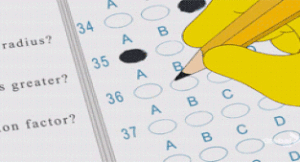
Two Important Notes before you appear for the ACT Writing Test !
Before you spend your valuable time preparing for the ACT Writing Test (Essay), you should make sure that the schools you’re applying to will require you to submit an ACT Writing score (the ACT Writing score is the essay score). The ACT Writing test is an optional part of the ACT. Some schools don’t require an ACT Writing score; some schools recommend you submit, but don’t require it; some schools require it. If you’re not sure whether your target schools will require you to submit an ACT Writing score, contact them directly to find out. There’s no reason to prepare for the ACT Essay if you aren’t going to submit the ACT Writing score to anybody.
It’s also important for us to clear something up about the scoring of the ACT Essay. Your final score on the ACT Essay will be on a scale of 2 to 12, but each individual grader who reviews your ACT Essay will give you a score from 1 to 6, and those scores will ultimately be combined to arrive at your final score on the 12-point scale. This means a perfect overall score on the ACT Writing test is 12, but each grader can only give a maximum score of 6. For some reason, the sample essays that appear on pages 123 to 139 of the Red Book are discussed as though they were only reviewed by one grader and given a score out of 6. So keep in mind that a perfect ACT Writing score is a 12 out of 12, but the Red Book sometimes refers to it as a 6 out of 6.
Overview And Important Reminders For The ACT Essay
At this point, you probably won’t be shocked to learn that the ACT Essay has very little in common with the essays you normally write in school—after all, nothing else on the ACT is the same as what we do in school.
Let’s take a minute to understand why the ACT Essay is so different from a school essay.
Before moving forward, register for our demo class now.
One of the most important differences between the two essays is that the person who grades your ACT essay will spend far less time on it than your teachers spend on your school essays. This is because ACT Essay-graders have to evaluate a much larger number of essays, and they have to do it in a standardized, repetitive, reliable way. (Remember that the results of the ACT must be standardised to be valuable, and that goes for the ACT essay just as much as it does for the multiple-choice sections.)

It has a standardised testing method
What does that mean? For one thing, graders can’t spend any time confirming any factual claims you make in your essay. Since it isn’t possible to evaluate all the factual claims in the nearly 2 million ACT essays written each year, and since all the essays have to be held to the same standard, the ACT graders can’t evaluate ANY of the factual claims made in ANY of the essays they grade—that’s the only way to treat all factual claims equally in the grading process.
That means you don’t have to worry about being penalized for saying something that’s factually incorrect on your ACT essay. In other words, your essay could be completely full of factual errors, and the grader wouldn’t be allowed to penalise you for it.
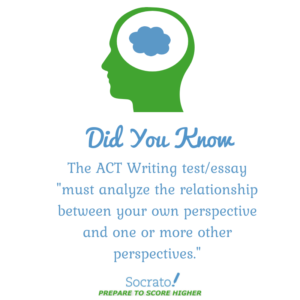
ACT Writing Test analyses
On the other hand, if you wrote an essay for history class and it contained factual errors, your teacher would certainly penalize you.
For similar reasons, you shouldn’t try to amuse or inform the reader of your ACT Essay; nor should you try to do anything else creative. Your grader isn’t going to be sitting in a cafe, having a leisurely look over your paper for an hour or so while drinking a latte and contemplating life. Instead, she’ll read your essay in a minute or so, with the goal of identifying key features of your essay that indicate which score it should receive, based on her training. So you really won’t have an opportunity to write an essay that stands out from the others in a positive way, as you might try to do with an admissions essay or a scholarship essay. On the contrary, you want your essay to blend in with all the other top-scoring essays by imitating the characteristics that all of those essays have (which is what you’ll learn about in this section of this Black Book, of course).
We may not be used to thinking about essay tests in terms of rules. The processes involved in writing and grading essays might seem like they’re too subjective for that. But we know the ACT Essay must follow regular, predictable rules in order to be part of a standardized test.
But those regular, predictable rules are probably not the rules you’d expect—for one thing, the actual characteristics of top-scoring ACT Essays don’t really reflect the Red Book’s guidelines for the ACT essay. ACT, Inc. doesn’t just come out and say, “Well, we’re going to have a lot of essays to grade, so yours probably won’t be looked at for more than a couple of minutes. A couple of overworked essay graders are going to read it once each really quickly and assign it a score based on a few key things like length, and then move on. Just make the essay more than two pages long and do a couple of other things, and you should score high.” Instead, the Red Book says things like, “the ACT Writing Test is designed to measure . . . those writing skills taught in rigorous high school English and writing classes and expected of students entering first-year college composition courses.”
So what should you do?
I recommend you approach this part of the test the same way we’ve approached every other part of the test: by exploiting the standardized nature of the ACT and doing the things that are consistently rewarded on this section, instead of believing what ACT, Inc. claims the section is about.
This section of this Black Book will teach you the unwritten rules of the ACT Essay, and then it will show you how those rules apply to real student essays that appear in the Red Book.
Unwritten Test Design Rules Of The ACT Essay (ACT Writing Test)
Click to know more about ACT Tips.
by Labhesh | Jul 4, 2020 | Uncategorized
Lorem ipsum dolor sit amet, consectetur adipisicing elit, sed do eiusmod tempor incididunt ut labore et dolore magna aliqua. Ut enim ad minim veniam, quis nostrud exercitation ullamco laboris nisi ut aliquip sunt in culpa qui officia deserunt mollit laborum. Lorem ipsum dolor sit amet, consectetur adipisicing elit, sed do eiusmod tempor incididunt ut labore et dolore magna aliqua. Ut enim ad minim veniam, quis nostrud exercitation ullamco laboris nisi ut aliquip sunt in culpa qui officia deserunt mollit laborum.
Discover Unlimited Beauty
Excepteur sint occaecat cupidatat non proident, sunt in culpa qui officia deserunt mollit laborum.
Lorem ipsum dolor sit amet, consectetur adipisicing elit, sed do eiusmod tempor incididunt ut labore et dolore magna aliqua. Ut enim ad minim veniam, quis nostrud exercitation ullamco laboris nisi ut.
Nemo enim ipsam voluptatem quia voluptas sit aspernatur aut odit aut fugit, sed quia consequuntur magni dolores eos qui ratione voluptatem sequi nesciunt.
Excepteur sint occaecat cupidatat non proident, sunt in culpa qui officia deserunt mollit anim id est laborum. Sed ut perspiciatis unde omnis iste natus error sit voluptatem accusantium doloremque laudantium, totam rem aperiam, eaque ipsa quae ab illo inventore veritatis et quasi architecto beatae vitae dicta sunt explicabo.
Excepteur sint occaecat cupidatat non proident, sunt in culpa qui officia deserunt mollit laborum.
Excepteur sint occaecat cupidatat non proident, sunt in culpa qui officia deserunt mollit laborum.
Lorem ipsum dolor sit amet, consectetur adipisicing elit, sed do eiusmod tempor incididunt ut labore et dolore magna aliqua. Ut enim ad minim veniam, quis nostrud exercitation ullamco laboris nisi ut aliquip. Nemo enim ipsam voluptatem quia voluptas sit aspernatur aut odit aut fugit.
Get 30% Off Your First Trip
Duis aute irure dolor in reprehenderit in voluptate velit esse cillum dolore eu fugiat nulla pariatur.
Excepteur sint occaecat cupidatat non proident, sunt in culpa qui officia deserunt mollit laborum.
What are you waiting for?































































Recent Comments